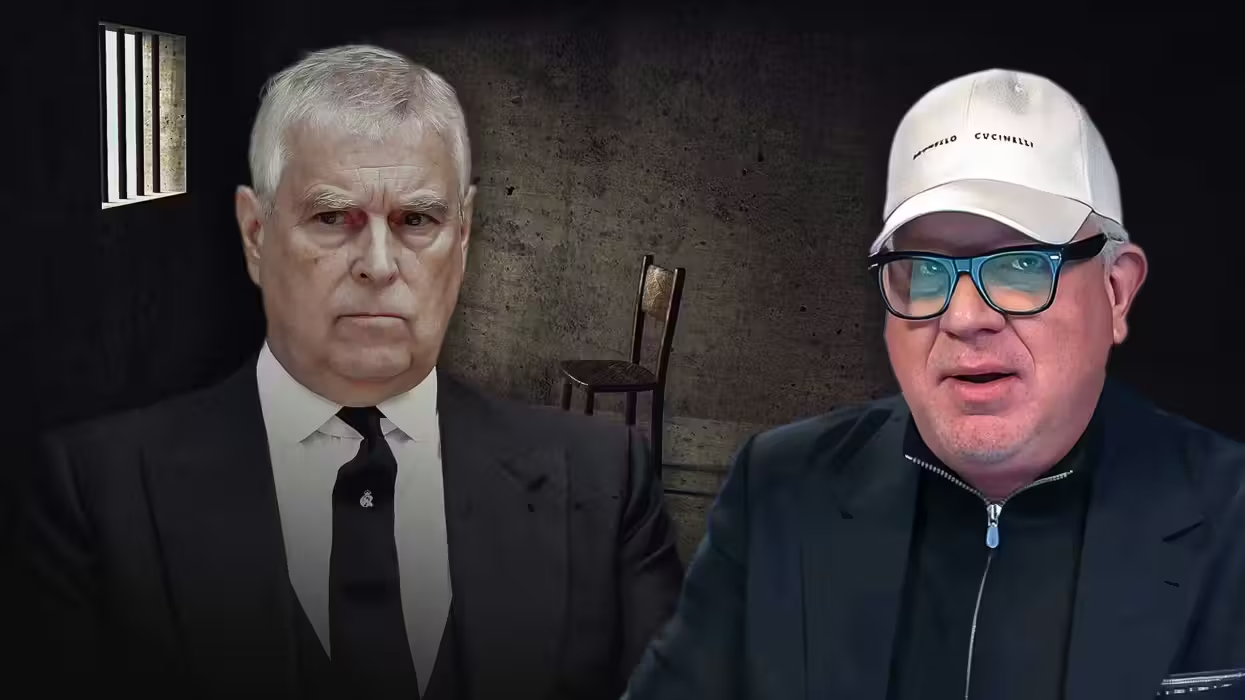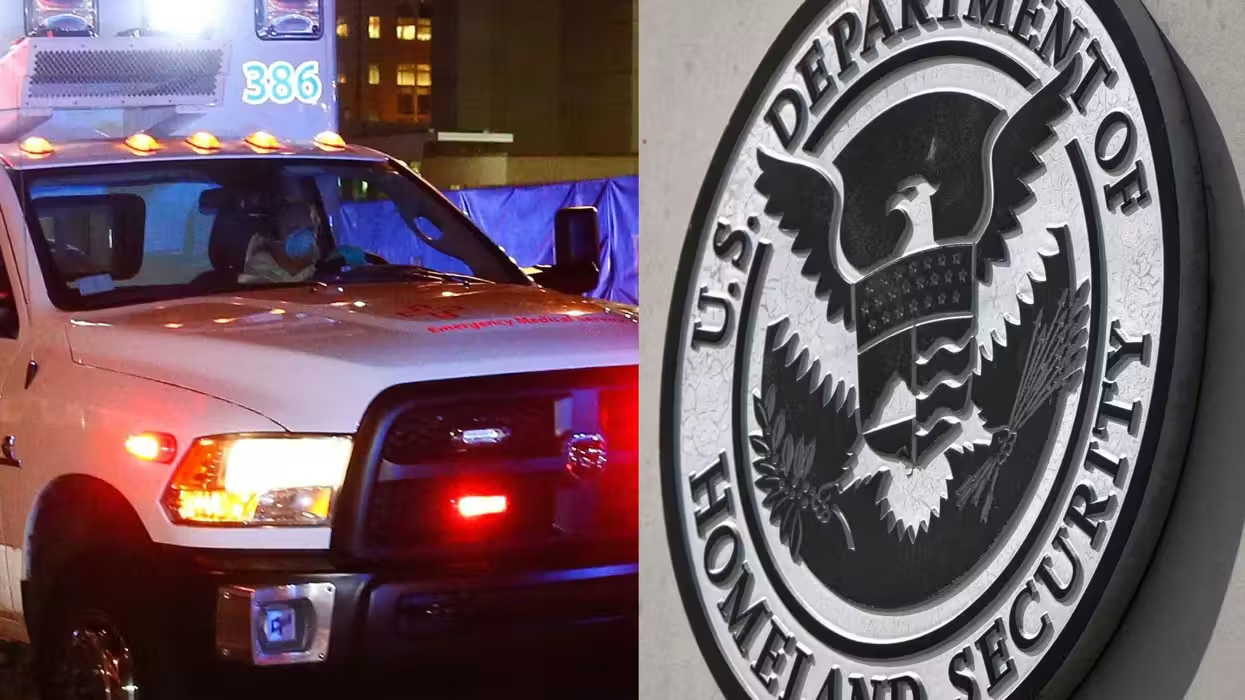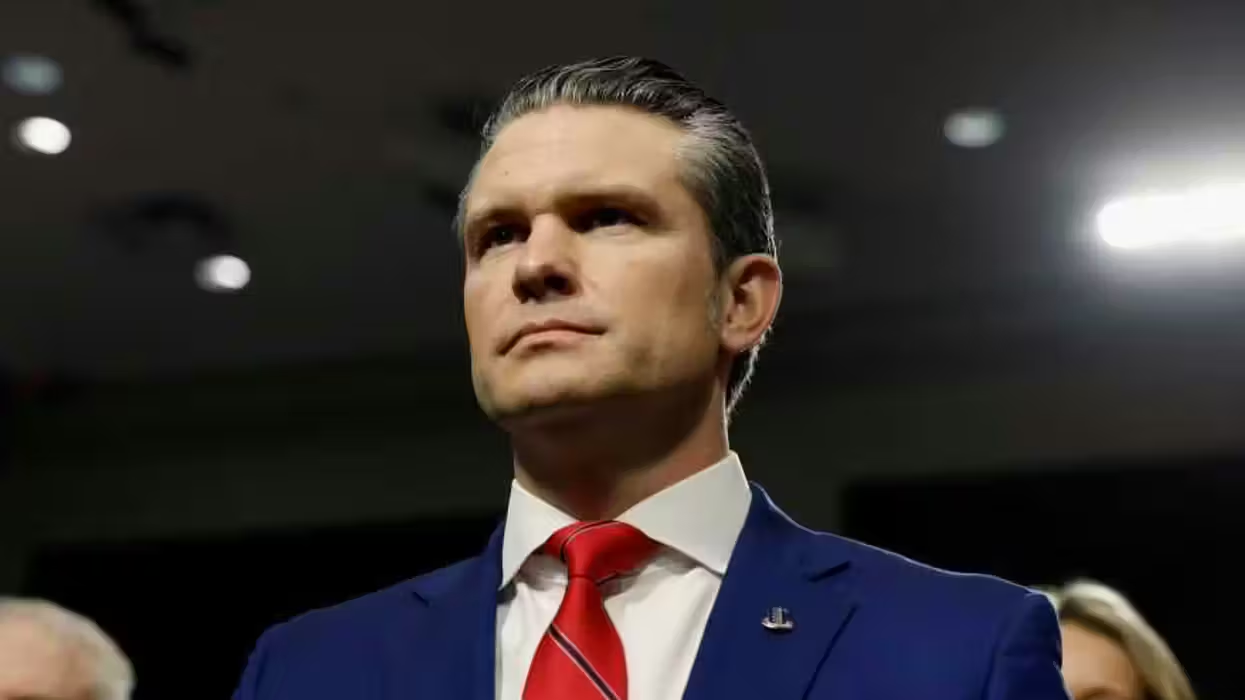
© 2026 Blaze Media LLC. All rights reserved.
Air Force Pilots Granted Whistleblower Status After Refusing to Fly Potentially Dangerous F-22s -- But Are They Being Punished?
May 11, 2012
“We need to make sure there is a culture in which others feel safe coming forward."

As recently as Feb. 2012, the one of the Air Force's most expensive planes -- the F-22 Raptor -- was experiencing problems with its oxygen system, causing pilots to experience symptoms that included difficulty concentrating and blackouts. The plane has had a long history of problems with the system with 12 cases of hypoxia reported from 2008 through 2011. The plane was grounded twice last year for such issues.
(Related: What's going on in F-22 fighters that's causing pilots to choke, even blackout?)
The latest in the saga of the faulty system, which no one seems to be able to pinpoint exactly what is going wrong, is that two pilots have spoken out and refused to get back into the cockpit. They have been labeled as whistleblowers. But even with the protection that comes with that status, the Air Force is still reprimanding one of them for speaking out.
Wired reports Capt. Josh Wilson and Maj. Jeremy Gordon with the Virginia Air National Guard are the only two pilots that publicly refused to get back in the planes. Gordon's flight qualification has since expired, but Wired notes for Wilson whose career is younger, the Air Force has moved forward with disciplinary action that could ultimately bring it to a premature end, even though he is protected under federal law as a whistleblower. Here's how Wired explains it:
The Air Force sent him a letter of reprimand that Frederick Morgan, the two pilots’ Ohio-based lawyer, says is just the first step in a potentially career-ending disciplinary process.In addition to seeking legal counsel, Wilson and Gordon appealed to Rep. Adam Kinzinger, himself an Air Force pilot, for protection under the federal whistleblower law. Kinzinger and Sen. Mark Warner issued a letter Thursday urging the military not to mess with these pilots — or any others that bring up problems with the Raptor.
“We need to make sure there is a culture in which others feel safe coming forward,” Warner wrote.
The Air Force acknowledges the protected status. “Air Force leadership has made clear that the we are treating the pilots as whistleblowers,” service spokesman John Dorrian tells Danger Room.

CBS 60 Minutes reported Sunday that the Wilson and Gordon are two of 22 pilots qualified to fly the plane, but they may not be the only ones who have chose to stop flying -- just the only ones publicly. Here's more from 60 Minutes on the conditions the men experienced while flying the plane:
Gordon and Wilson are among the F-22 pilots who have experienced the low-oxygen condition called hypoxia, which the Air Force speculates may be caused by a problem in the pilots' oxygen system. "This is something strapped to my face under which I have no control of what's coming through that tube, which means there may be a point when I don't have control over myself when I'm flying," he tells Stahl. Asked by Stahl whether the plane was safe to fly, Gordon replies, "I'm not comfortable answering that question. I'm not comfortable flying in the F-22 right now." He points to the danger of hypoxia. "The onset of [hypoxia] is insidious. Some pilots will go the entire mission, land and not know anything went wrong," he tells Stahl, relating the time a pilot finished a mission unaware he had hit a tree in-flight.Wilson describes his battle to overcome his hypoxia as he flew the F-22 last year. "It was...kind of a surreal experience," he says, taking "immense concentration" to perform simple tasks. He says he followed his training and attempted to pull an emergency oxygen ring. "I couldn't find it. I couldn't remember what part of the aircraft it was in." The pilots were told to keep flying despite the danger the incidents posed to them and, potentially, to people on the ground, so the Air Force could learn more about what has wrong with the plane. "We have been told that we are data collectors," says Wilson.
CBS later reported a Senate hearing on the issue occurred Tuesday where those in attendance were assured by General Janet Wolfenbarger the two men would not be retaliated against for coming forward. At that time, the lawyer for the two men stated they were looking for the Letter of Reprimand issued to Wilson to be removed.
As of Wired's Friday story, the letter still stands. Wired notes Wilson's lawyer saying the pilot even offered to go back in the air, as he didn't want to be disciplined further. Gordon too has since agreed to get back in the cockpit, but Morgan notes it is only because the two men want to help the military figure out the problem and help the plane function properly. Wired states the Air Force is currently considering these offers.
At the same time, a May 2011 report from the Department of Defense Office of the Inspector General was recently revealed, showing a review of 152 whistleblowers, half of the which were left vulnerable. The Washington Post reported the investigators as recommending the military's procedures be revised to increase protection for whistleblowers and those in Congress agreed:
Sen. Charles E. Grassley (R-Iowa), the Senate Judiciary Committee’s top Republican, called the report disturbing. “Heads must roll,” he said in an April 24 letter to Lynne M. Halbrooks, acting inspector general. “The root cause problems identified in the report must be addressed and resolved immediately.”
If you're interested in learning more about Wilson and Gordon's positions, watch the full 60 Minutes report from Sunday:
This story has been updated for clarity.
Want to leave a tip?
We answer to you. Help keep our content free of advertisers and big tech censorship by leaving a tip today.
Want to join the conversation?
Already a subscriber?
more stories
Sign up for the Blaze newsletter
By signing up, you agree to our Privacy Policy and Terms of Use, and agree to receive content that may sometimes include advertisements. You may opt out at any time.
Related Content
© 2026 Blaze Media LLC. All rights reserved.
Get the stories that matter most delivered directly to your inbox.
By signing up, you agree to our Privacy Policy and Terms of Use, and agree to receive content that may sometimes include advertisements. You may opt out at any time.






